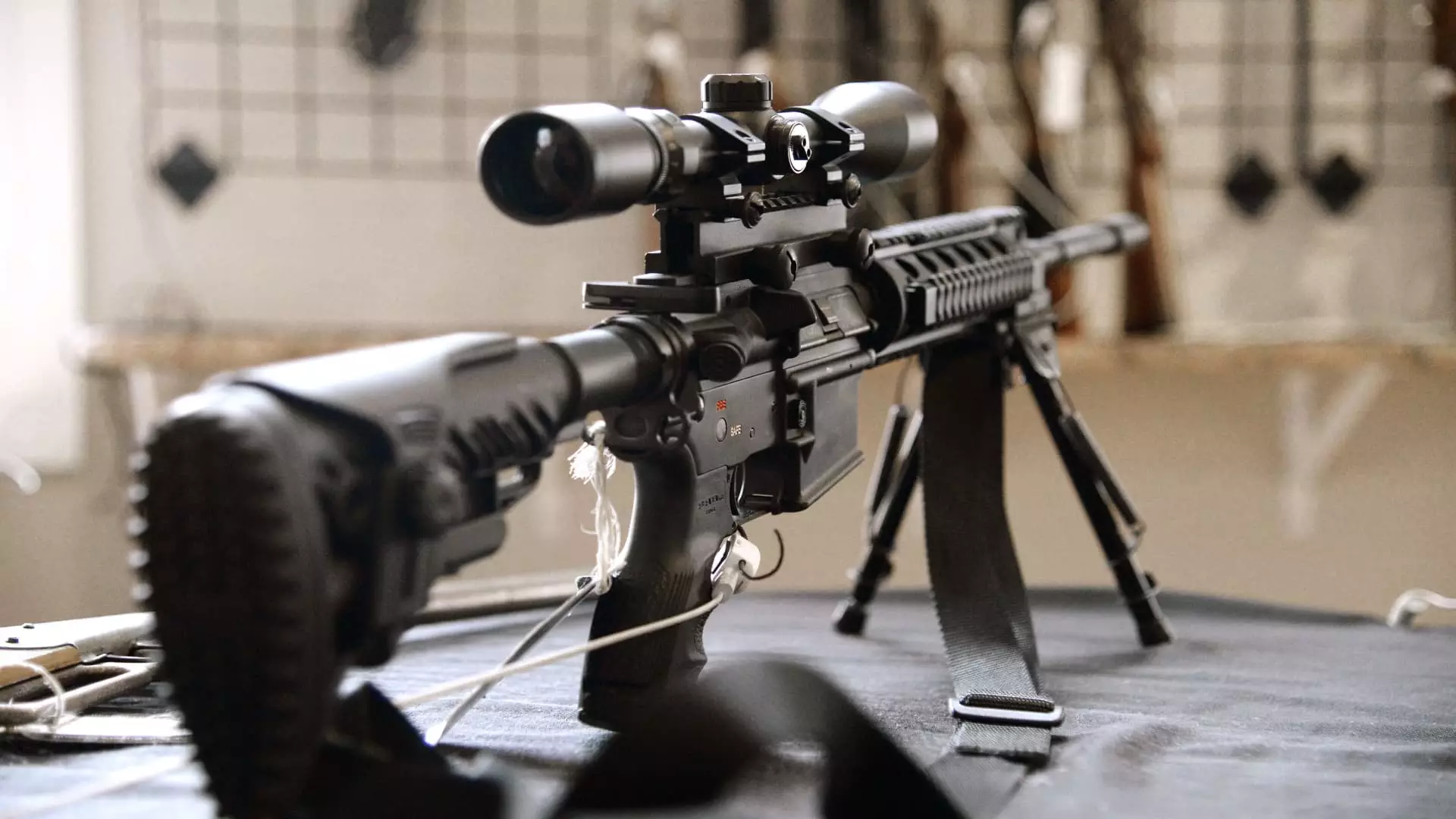In a significant political move, Rhode Island’s Democratic-controlled State House has recently approved a legislation aimed at banning the sale and manufacturing of several semiautomatic rifles, often labeled as assault weapons. This critical juncture marks the state’s grappling with the complex issue of gun control, a debate fraught with conflicting views and considerable emotion. The bill now rests in the hands of Democratic Governor Dan McKee, who has expressed support for such bans. If enacted, Rhode Island would join a select group of states with imposed restrictions on these firearms—making a palpable statement in the ongoing national discourse surrounding gun violence.
The push for an assault weapons ban in Rhode Island is not a recent phenomenon; it has been on the agenda for over a decade, reflecting a persistent demand from advocates who have witnessed the rising toll of mass shootings across the country. Yet, in a region that predominantly leans Democratic, the path to reform has been fraught with hesitation and debate. The proposed legislation limits itself to the manufacturing and sale of these weapons, leaving the possession intact—a seemingly half-hearted approach to the rampant issue of gun violence. Critics highlight this discrepancy, calling it a superficial measure that leaves the core problem unaddressed.
Incremental Progress or Insufficient Action?
The bill’s supporters, including Democratic Rep. Rebecca Kislak, have described the legislation as a necessary incremental step towards enhancing public safety, indicating a desire to align Rhode Island’s laws with those of its neighboring states. Yet, even Kislak conveyed a sense of frustration regarding the limitations of the bill, lamenting that lawmakers could have gone further. Her “do something” vote may reflect a legislative environment where meaningful change is stymied by underlying political tensions and a lack of consensus on the scope of gun reform needed. Such sentiments give rise to a pressing question: If our leaders can only muster half measures, what does that say about our commitment to public safety?
While proponents tout the bill as a vital first step, influential figures within the gun control advocacy community, such as David Hogg, have criticized it as the “weakest assault weapons ban in the country.” This severe indictment suggests a mismatch between what is sought by advocates and what is being legislatively offered. The expectation for a robust response to gun violence feels continually undermined by legislative timidity, leaving citizens to wonder about the efficacy of such a narrow repeal.
Counterarguments: The Divide Remains
Opposition voices, particularly from Republican lawmakers, argue vehemently that the proposed restrictions will not address the real issue at hand—namely, the prevalence of gun violence. They assert that the legislation merely penalizes responsible gun owners while failing to affect the criminals who misuse firearms. Such contentions point to a consistent narrative used by gun rights advocates, who claim the legislation infringes upon Second Amendment rights. Interestingly, this argument gains traction in a society desensitized to gun violence, where discussions often ignore the nuanced connection between access to firearms and public safety.
Additionally, critics like Republican Rep. Michael Chippendale foresee imminent constitutional challenges, suggesting that enacting such a law would provoke national litigation. One might reflect, however, on whether preserving individual rights should supersede the pressing need for communal safety—a debate that showcases the ideological rift that characterizes American political discourse today.
An Evolving National Conversation
Despite the uphill battles on both sides of the argument, this legislative development in Rhode Island occurs at a critical moment in a broader national conversation about gun control and rights. The Supreme Court’s conservative majority could soon engage with these issues, considering the increasing number of court cases challenging existing bans. Observing how Rhode Island navigates this contentious terrain could provide a bellwether for other states contemplating similar actions.
In sum, Rhode Island’s approach to banning assault weapons sheds light on the complexities of enacting real change in the wake of tragedy. As advocates press for more rigorous regulations and opponents rally for the protection of existing rights, the state stands at a crossroads: a nuanced examination of the interplay between public safety and individual liberties reminds us that in the dialogue surrounding gun control, there are no easy answers. The reality remains that, until more comprehensive measures are actively pursued, the conversation is likely to be one of frustration and disappointment.


Leave a Reply